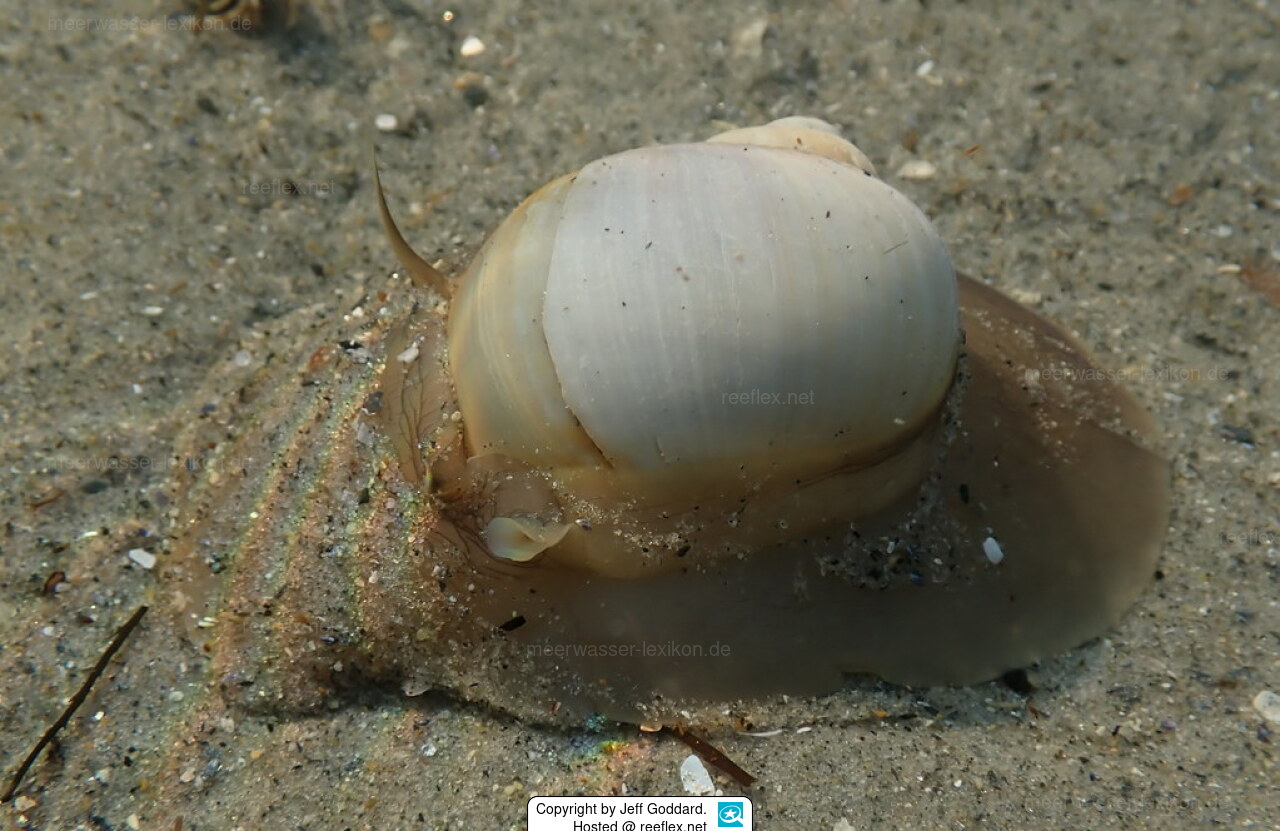Info
Euspira heros (Say, 1822)
Euspira heros belongs to the family Naticidae, the umbilical snails. Members of the family have spherical shells with a crescent-shaped opening, which is why they are also known as moon snails. be called moon snail. Moon snails have a horny or calcareous operculum. They occur worldwide, even as far as the Arctic and Antarctic.
Euspira heros is a fairly large moon snail, whose shell can grow up to 12.5 cm. The operculum for closing the shell opening is large, horny, transparent and has an ear-shaped outline.
Euspira heros is found on sandy soils where, like all moon snails, it prey on clams and other snails on which it feeds. Its powerful foot allows this snail to dig in the sand in search of other mollusks. As soon as the moon slug has found a prey, it "drills" a hole in the shell with its radula, releases digestive enzymes and sucks out the somewhat pre-digested contents.
The sand collar is the egg mass of a moon snail.
Synonymised names:
Lunatia heros (Say, 1822) · unaccepted (unaccepted combination)
Natica ampullaria Lamarck, 1822 · unaccepted
Natica heros Say, 1822 · unaccepted (original combination)
Natica pomum R. A. Philippi, 1853 · unaccepted
Polinices heros (Say, 1822) · unaccepted
Euspira heros belongs to the family Naticidae, the umbilical snails. Members of the family have spherical shells with a crescent-shaped opening, which is why they are also known as moon snails. be called moon snail. Moon snails have a horny or calcareous operculum. They occur worldwide, even as far as the Arctic and Antarctic.
Euspira heros is a fairly large moon snail, whose shell can grow up to 12.5 cm. The operculum for closing the shell opening is large, horny, transparent and has an ear-shaped outline.
Euspira heros is found on sandy soils where, like all moon snails, it prey on clams and other snails on which it feeds. Its powerful foot allows this snail to dig in the sand in search of other mollusks. As soon as the moon slug has found a prey, it "drills" a hole in the shell with its radula, releases digestive enzymes and sucks out the somewhat pre-digested contents.
The sand collar is the egg mass of a moon snail.
Synonymised names:
Lunatia heros (Say, 1822) · unaccepted (unaccepted combination)
Natica ampullaria Lamarck, 1822 · unaccepted
Natica heros Say, 1822 · unaccepted (original combination)
Natica pomum R. A. Philippi, 1853 · unaccepted
Polinices heros (Say, 1822) · unaccepted







 Jeff Goddard, USA
Jeff Goddard, USA



